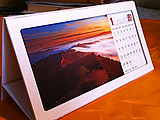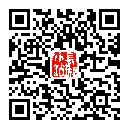长城上的幽灵与恋人(part 2)
 |
长城小站是由志愿者支持的公益性网站,无固定经济来源。2012年小站台历是由各方网友赞助图片、设计、印刷精心制作的纪念品,用于小站运营经费筹款。
欢迎您购买小站台历,支持长城小站与小站博客的发展。 |
|
Inspiration 灵感
在沿着这条隆起的巨龙行走不辍的时候,Marina Abramovic尤其被关于它的传奇故事打动;感染着她的,也许还有象银河般流淌的河流,和她所看到的针灸疗法的神奇。Marina Abramovic 和Ulay两个人同时对这个奇妙而又令人鼓舞的旅程赞赏不已。在那里,如同他们自己所说的那样,他们在寻找着的关于他们两人之间的关系的新表达式的同时,还试图去发现那些在西方文化中已经失落了的所有的东西。用Ulay的话来说,他们在找寻着与“大地母亲”的联结。
Especially Marina Abramovic is under the influence of the legendary
tales about the energy running along this spine of a dragon, or a
river representing the milky way, and connections she sees with
acupuncture. Both Marina Abramovic and Ulay expressed great
admiration for this strange and inspiring environment. As they where
looking for a new way of expressing their own relationship, at the
same time they tried to find all the things that, as they say, are
gone or lost in the western culture. To put it in Ulay's words they
were looking for contact with Mother Earth.
Reality 现实
在中国的真实情况却永远不会是那么简单,官员们几乎无时不刻的陪伴着他们。大部分的旅程中间他们并不是在野外搭帐篷露营,而是被当地官员塞进旅馆里,有时到旅馆要开几个小时的车,第二天早上再返回原地。绝大多数时间里,在长城这一头的Marina Abramovic总是设法离让自己离城墙再近一点。这个原本要行走一年的计划因为中国官员的介入,仅仅用了三个月就草草收场。中国政府不允许他们走完全部的长城,一些地方被略去,因为那里有军事设施或者有其他不愿意让外国人看到的东西。按照这一以“情人”冠名的计划,两人会在他们会面的地方举行婚礼,而这一婚礼仪式是对一系列的名为“关系”的演示活动的加冕,这是个他们为之努力工作了十年的主题。最后,在1988年6月27日,他们在陕西省神木地区的二朗山相会。
In reality things are never that simple in China, all the time they
were accompanied by officials. During most of the walk instead of
camping in the wild Ulay was put in hotels by the local officials.
Sometimes driving for hours to get to the hotel and back the next
morning. Marina Abramovic on the other end of the Wall managed to
keep closer to the Wall most of the time. Originally the plan was to
walk for a year but due to Chinese involvement they ended up walking
for only three months. They were not allowed by the Chinese
government to walk along the whole Wall, parts were skipped because
of military installations or other things the Chinese did not want
any foreigners to see. The project started with the title 'The
Lovers' and at the point where the two would meet a wedding was
planned. This wedding should put a crown on the series of
performances called Relations. The theme they have been working on
for a decade. Finally they met on June 27, 1988 at Er Lang Shan in
Shenmu in the province Shaanxi.
In China 在中国
同一时期的中国艺术家们关心的是完全不同的事情。例如,1989年在北京美术馆举行的裸体画展,这是自世纪初以来的首次,在那个年代,欧洲展览什么中国就展览什么。所有的画作展示的都是女性的身体,只有一个例外,一个叫guang jun的勇敢的艺术家画了他自己的胴体。也许大家对此有兴趣,但我不会给你们展示这些,现在我们再次回到长城。
In the same period Chinese artists are concerned with completely
different things. For instance the 1989 exhibition showing paintings
of nudes in the Beijing Museum of Fine Arts. This was for the first
time since the early years of this century anything so European was
shown in China. All of these paintings where female nudes, except
one, one brave male artist Guang Jun painted himself in the nude.
Interesting as that may be, I am not going to show you that, but I
want to go back to the Great Wall ones more.
Xu Bing 徐冰
徐冰在那个时候已经以作品《天书》而闻名。这是一个他为之工作多年的艺术项目。雕刻了数以千计的木制汉字并按古老的方式印制成册。这一作品1989年二月在北京展出伊始就反响热烈。(链接或图片)
Xu Bing was already a famous artist in China with 'A Book from the
Sky'. This is an Art project he worked on for years. Cutting
thousands of ineligible characters in wood blocks and printing them
in the old Chinese way. This work was exhibited in Beijing in
February 1989 and got at first very positive reviews.
Xu Bing and the Great Wall徐冰与长城
1989年五月,他开始进行一个新的项目,《鬼打墙》。他用了25天时间,对金山岭长城的一部分进行拓印。为此项目他和他的助手们共用掉了300瓶墨汁和1300张宣纸和卫生纸。在工作期间,他还做了摄影、录像和录音工作。这一庞大工作的成果就是一张1000平米的拓片。(链接或图片)
In May 1989 he was working on a new project. This is named 'Ghosts
Pounding the Wall'. He spends twenty-five days in Jinshanling to
make a rubbing of a part of the Great Wall. For this project he and
his co-workers used 300 bottles of ink and 1300 sheets of rice-paper
and tissue-paper. Special outfits were designed beforehand to wear
during the work. During the time he worked on the Wall, photographs,
videotapes and sound tapes were made. The result of all this
enormous effort was 1000 square meters of rubbings.
Rubbing拓印
拓印是一种典型中国式的印刷技术。 把一张纸铺在被拓物体的表面,然后用墨水浸润,于是空的部分是白色的,其余部分沾上了黑色。这样你就得到了被拓物体表面的底片。
A rubbing is a typical Chinese technique of making an imprint. A
piece of paper is put on a surface and than rubbed with a ink pad.
So the hollows are white and the rest is black. In this way you get
a negative imprint of the surface.
Wallpaper 长城拓片
当地人或多或少的认为,这一段长城是构成他们的家园的一部分,他们叫它“边墙”。基于这一点,他们管忙于拓印的艺术家和他的朋友们叫做“裱糊工”。一开始当地人并不过问这样做是为了什么,后来直到他们被艺术家雇佣来完成这项工作,仍然没有人关心这张长城拓片的用途。
The local people consider this stretch of the Great Wall more or
less part of their home, 'the side wall' as they call it. From that
perspective they named the artist and his friends working on the
rubbings 'paperhangers'. At first the locals never asked themselves
what the use would be, and later on as local people were hired and
worked with the artist nobody cared about the usefulness of this
wallpapering.
Printing and its possibilities as the main theme for Xu Bing's work
绘画及其可能--徐冰的作品主题
徐冰当时是北京美院讲授绘画技法的教师。在一次采访中,他阐述了他的创作动机:他花了大量时间去思考绘画的过程,思考着再现过程中的所有可能用到的材料和方式,也许,对他来说最重要的是隐藏在所有这一切的背后的某些含义。他尝试了所有的绘画形式。在他的脑海中印象最深刻的就是那些来自他的故乡省份的形状各异的石头--那是自然赋予的鬼斧神工。这一幕萌发了他追溯凝聚在长城身上的历史与自然踪迹的念头:一个对逝去时代的伟大再现。
Xu Bing was at that time a teacher of the Beijing Academy of Fine
Arts and was specialised in graphic techniques. In an interview he
explains his motives saying that he spends a lot of time thinking
about the process of printing, considering al possible materials and
ways of reproduction, and maybe most important to him the meaning
behind al this. He tried all forms of printing. He remembered the
many different shaped rocks in his home province that to him was the
most impressive form of natures imprint. That vision gave him the
idea to make use of the traces left by history and nature on the
Great Wall, making it into a giant reproduction of former times.
关于徐冰和他的作品
sting于
2004-02-25 00:38:18 发表在分类:
中
(55448次点击) | 标签:

![Validate my RSS feed [Valid RSS]](valid-rss.png)
